A Guide for Women Arrested in Los Angeles County
From the homeless woman charged with petty theft to celebrity bad girls like Paris Hilton, Lynwood Jail becomes a temporary home for women arrested in Los Angeles County. Also known as the Century Station Jail, Lynwood is the main LA County jail for women. If you're a woman arrested in Los Angeles, you're likely to be taken to Lynwood Jail for processing and booking.
The arrest, booking, and bail bond process goes more smoothly and is less frightening if you understand the process and know what to expect.
Stay Calm During the Arrest Process
The police may arrest you if they have probable cause to believe you have committed a crime. They detain you, read your Miranda warnings ("You have the right to remain silent….etc."), and transport you to a jail – usually Lynwood Jail – for processing and booking.
Even if you think the police are making a mistake when they arrest you, it's important to be cooperative. Otherwise, the police may charge you with resisting arrest, which makes your situation that much worse.
- Never argue with the arresting officers.
- Don't try to run away from or touch the officers.
- Keep your hands in view at all times.
- Be polite; don't threaten the officers with lawsuits or yell about police brutality.
- Give your real, true name. Bailing out “Jane Doe” or “Sue Z. Cue” is next to impossible.
The police will ask you if you have weapons, needles or anything sharp that may harm them. Answer honestly because next they will search you to make sure you don't have a weapon. Expect to be handcuffed and transported to a booking facility known commonly as jail. The majority of women arrested in Los Angeles County are taken to Lynwood Jail, but you also may be processed at another facility and eventually moved to Lynwood. If you’re at a large event like a sporting event or concert, they may have temporary holding facilities and will transport you later to a jail. Any transfer will add to the time it takes to get released, so be prepared to wait.
The police can question you before or after you're booked. Most attorneys say it's best not to volunteer any information except for your name and address, which you must provide. Be careful what you say. The police aren't kidding when they warn you that "anything you say can and will be used against you." If you request an attorney, they must stop the interrogation until your attorney arrives.
Booking Procedures May Take a Long Time
Once at Lynwood Jail, women are "booked," or processed into the system. Nothing about the booking process is speedy, and you won't be able to arrange for bail until it's complete. In large jails, booking can take as long as 12 – or sometimes longer.
Major parts of the booking process include:
- Basic personal information. You're asked for your name, address, phone number, social security, phone number, and next of kin information.
- Photograph. This is the infamous "mug shot," which will look even worse than your driver's license photo.
- Property collection. Jail personnel collect all your personal belongings including jewelry, purse, wallet, etc. and give you a receipt. Everything will be returned to you when you're released, except for illegal substances or items kept as evidence. Check the receipt to make sure that everything taken from you is listed.
- Fingerprinting and identification. Your fingerprints and personal information are entered into the federal database for future reference and to check for outstanding charges, warrants or matches to unsolved cases. If they police took fingerprints at the scene, they'll try to match yours to those as well.
- Body search. This can be uncomfortable, embarrassing, and/or humiliating. The extent of the search depends on different factors; it may be a simple pat down, but it could also be a full cavity search. The only good thing to say is that it must be conducted by a female police officer or jail employee.
Once the booking procedures are complete, jail personnel take you to a jail cell where you will likely remain until bailed out, released on your own recognizance (for minor offenses) or it's time to appear before a judge. At some point in the process, you can make a phone call. The earlier you can make your call, the better, because it means your family can go ahead start working with a bail bond agent.
When you make your phone call, be sure to give the person you call the following information:
- Your full name and date of birth.
- The name of the jail. If you aren’t sure what jail you are in, let them know where you were arrested. Your family can't bail you out if they can't find you!
- Your bail amount, if you know it. Also, let the person know that you do want to be bailed out and if you can afford the bail bond fee (10% of the bail). Remember, no one can call in to you, so make sure you provide all the information you can up front. If you call your brother and he’s not sure you want to be bailed out (duh!), you could wait considerably longer in jail.
- Ask the person you call to take care of children, pets and any job situations that can be addressed. You may not be out of jail in time for work, so you may want someone to call in for you.
Your Experience While in Jail
The arrest and booking process is unnerving enough, but most women are terrified by the thought of being placed in the holding cell with a lot of strangers. It's impossible to forget all those B movies and news stories about prison violence.
Naturally, there is some danger, but remember approximately 70% of women arrested in California are charged with non-violent crimes: offenses like drug possession, writing bad checks, petty theft, and prostitution. Only about a quarter are charged with violent offenses and most of those are against husbands, boyfriends, and other family members.
Remember that you are incarcerated with people you don't know. They may be dealing with mental health issues, drug addictions, or other problems that make them emotionally unstable. It's best to be reserved, but friendly. Don't volunteer personal information; don't make statements that denigrate a particular ethnic or religious group; and don't give others the impression that you think you're "too good" to be in jail with the rest of them.
Bail Bond and Release Procedures
The bail amount is set by judges in a County Bail Schedule based on the charges. Bail Schedules generally have differing bail amounts depending on the severity of the crime. For example, a DUI in LA County has a $15,000 bail; a DUI with accident is $50,000 and so on.
Bail can be raised, lowered or removed only by a judge. Waiting to be heard in front of a judge means additional time in jail. If you do wait for a judge, the judge considers the severity of the offense, likelihood that you're a danger to the community, the amount of jail time if you're found guilty, your past arrest record, and community ties.
The average bail amount in California is $25,000. Often bail is set higher. Since few people can pay the whole amount, you'll probably need to contract with a licensed bail bond agent. The bail agent can walk you through the entire bail bond process and handle the release. Professional bail agents know the jail systems and often know the bail schedules. They can begin the bail process to obtain the fastest release possible. The sooner a bail bondsman is contacted, the faster the release can occur.
Bail agents charge 10% of the bail amount as payment for their services. The California Legislature regulates this cost. If a bail agent offers you a "cheap 5% bail bond," you're dealing with someone willing to violate California law, and that's dangerous for you.
After all, if the bail bond agent doesn’t follow that part of the law, how can you be sure he'll follow the appropriate procedures for obtaining your release and return your collateral when the case is complete?
Getting arrested is never fun: the booking process can be slow and frustrating, and a night in jail can be as scary as it sounds. But, in this case, knowledge really is power. Once you understand what is happening, what your rights and responsibilities are, and how to arrange for release, you'll be able to handle yourself and stay calm until you're back home with your loved ones.

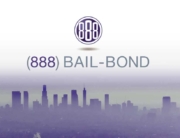
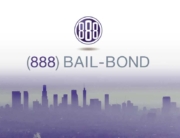
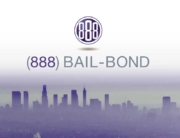


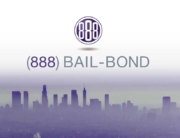
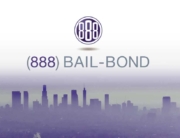
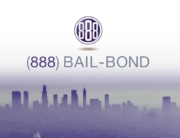
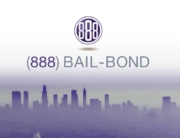
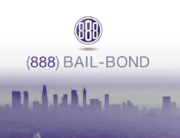




Follow Us
Facebook
Twitter
Google +1
LinkedIn
Youtube